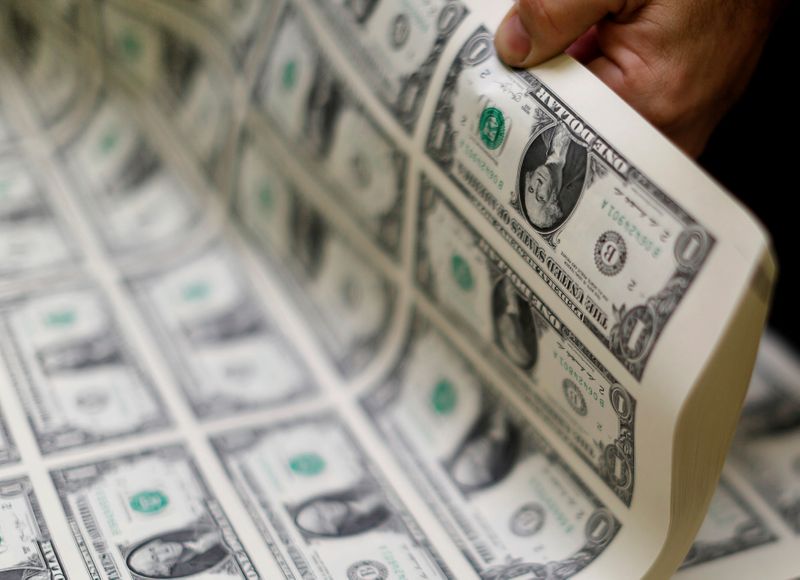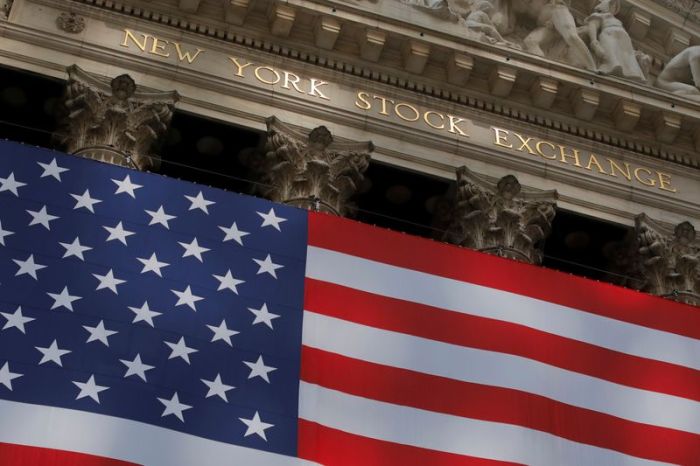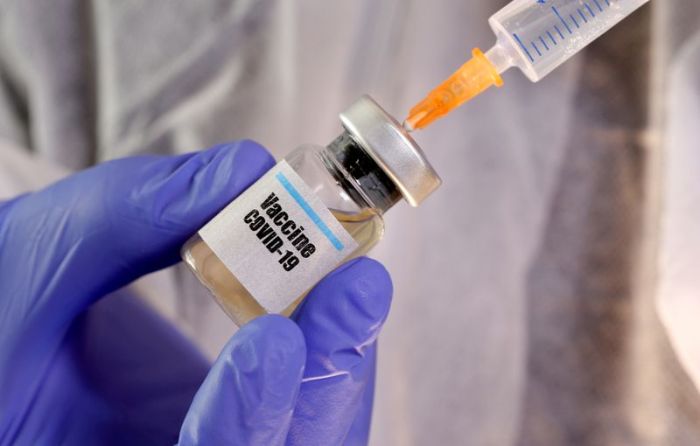NEW YORK (Reuters) – Wall Street rose in a choppy session on Thursday on hopes of more economic stimulus but the gains were not enough to lift an index of stocks across the globe, while the dollar ticked down from two-month highs.
The Federal Reserve this week has talked up the importance of more fiscal stimulus amid investor fears of another economic hit from the coronavirus pandemic. Weak labor market data on Thursday underscored that need.
Democrats in the U.S. House of Representatives are working on a $2.2 trillion coronavirus stimulus package that could be voted on next week, a lawmaker said on Thursday, as House Speaker Nancy Pelosi reiterated that she is ready to negotiate with the White House.
Even so, Wall Street’s largest companies, some of which have outperformed at a time of increased economic uncertainty, took the lead in pushing indexes higher. The tech sector was the most influential within the S&P 500.
“Investors are going to be needing stocks that can weather a lower growth path because if we don’t get another round of fiscal stimulus, there’s not going to be a lot more we can do to continue boosting the economic recovery,” said Max Gokhman, capital markets strategist at Pacific Life Fund Advisors.
The Dow Jones Industrial Average <.DJI> rose 52.31 points, or 0.2%, to 26,815.44, the S&P 500 <.SPX> gained 9.67 points, or 0.30%, to 3,246.59 and the Nasdaq Composite <.IXIC> added 39.28 points, or 0.37%, to 10,672.27.
The pan-European STOXX 600 index <.STOXX> lost 1.02%, and MSCI’s gauge of stocks across the globe shed 0.43%.
Emerging market stocks lost 1.85%. MSCI’s broadest index of Asia-Pacific shares outside Japan closed 2.15% lower, while Japan’s Nikkei <.N225> lost 1.11%.
The dollar index <=USD> ticked down but remained near two-month highs as economic concerns boost its safe-haven allure. The dollar index <=USD> fell 0.073%, with the euro <EUR=> up 0.11% to $1.1672.
The Japanese yen strengthened 0.01% versus the greenback at 105.36 per dollar, while Sterling <GBP=> was last trading at $1.2743, up 0.17%.
Oil turned higher as the dollar weakened, but the prospect of slowing demand kept prices wobbly. A bullish drop in U.S. crude and fuel inventories gave crude support.
U.S. crude <CLc1> recently rose 0.73% to $40.22 per barrel and Brent <LCOc1> was at $41.82, up 0.12% on the day.
U.S. Treasury yields dipped, caught between the downbeat economic data, U.S. election uncertainty and the rise in stocks.
“People want to sell the market because of what is going to take place in the election, then there are those who need to buy yield and any time the market backs up they are right in there,” said Tom di Galoma, managing director at Seaport Global Holdings in New York. “That is why we are in a very tight trading range at this point.”
Benchmark 10-year notes <US10YT=RR> last rose 3/32 in price to yield 0.6659%, from 0.676% late on Wednesday.
In emerging markets, Turkey surprised traders with a hike in its policy rate by 200 basis points to 10.25%, sending the lira and bonds higher.
Spot gold <XAU=> added 0.4% to $1,870.13 an ounce. Silver <XAG=> gained 1.49% to $23.21.
(Reporting by Rodrigo Campos; additional reporting by Sagarika Jaisinghani and Devik Jain in Bengaluru, Ahmad Ghaddar in London and Herbert Lash, Sinéad Carew and Chuck Mikolajczak in New York; editing by Jonathan Oatis, Leslie Adler and David Gregorio)























